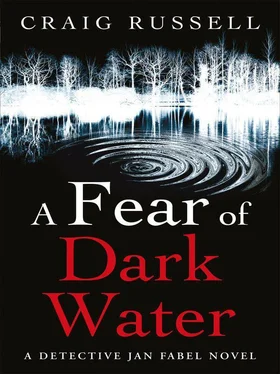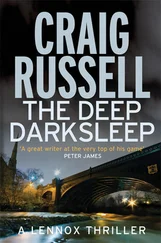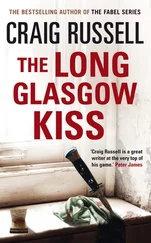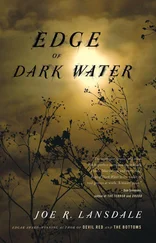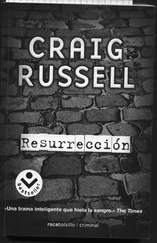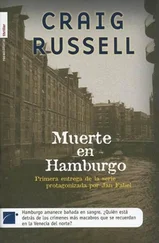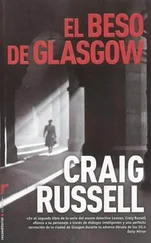Craig Russell - A fear of dark water
Здесь есть возможность читать онлайн «Craig Russell - A fear of dark water» весь текст электронной книги совершенно бесплатно (целиком полную версию без сокращений). В некоторых случаях можно слушать аудио, скачать через торрент в формате fb2 и присутствует краткое содержание. Жанр: Триллер, на английском языке. Описание произведения, (предисловие) а так же отзывы посетителей доступны на портале библиотеки ЛибКат.
- Название:A fear of dark water
- Автор:
- Жанр:
- Год:неизвестен
- ISBN:нет данных
- Рейтинг книги:5 / 5. Голосов: 1
-
Избранное:Добавить в избранное
- Отзывы:
-
Ваша оценка:
- 100
- 1
- 2
- 3
- 4
- 5
A fear of dark water: краткое содержание, описание и аннотация
Предлагаем к чтению аннотацию, описание, краткое содержание или предисловие (зависит от того, что написал сам автор книги «A fear of dark water»). Если вы не нашли необходимую информацию о книге — напишите в комментариях, мы постараемся отыскать её.
A fear of dark water — читать онлайн бесплатно полную книгу (весь текст) целиком
Ниже представлен текст книги, разбитый по страницам. Система сохранения места последней прочитанной страницы, позволяет с удобством читать онлайн бесплатно книгу «A fear of dark water», без необходимости каждый раз заново искать на чём Вы остановились. Поставьте закладку, и сможете в любой момент перейти на страницу, на которой закончили чтение.
Интервал:
Закладка:
Otto asked one of his staff to take over and led Fabel to an area set out with sofas. There was a coffee machine in the corner and, surrounded by books, the two old friends sat down and engaged in the obligatory introductory small talk. Then Fabel ran through all he knew about the Pharos Project and their ideas of Consolidation, simulated realities and the removal of mankind from the biosphere.
‘I just don’t get it,’ said Fabel when he had finished. ‘The Pharos Project is supposed to be an environmental group, yet they are obsessed with the idea of simulated reality. Other than this bizarre claim that simulated reality allows mankind to take itself out of the environment and therefore save it… which, by the way, I don’t get: why save something that you want to escape from? Anyway, apart from that, I just don’t understand the connection.’
‘Well, you’re wrong, Jan. The two ideas have always sort of gone together. Way back at the end of the nineteenth century, some of the world’s leading geologists — Eduard Suess, Nikolai Fyodorov, Vladimir Vernadsky and a host of others — came up with both ideas and saw them as inextricably linked. A couple of them actually posited that the biosphere was itself nothing but a simulation.’
‘Yeah…’ Fabel made a sceptical face. ‘Those crazy Russians…’
‘No, Jan, you shouldn’t be so dismissive. There were some ideas in there that are now part of mainstream thinking. Way back then, Vernadsky believed that the greatest force in shaping the geology of the Earth was the human intellect. Some geologists today think we should be calling this age the Anthropocene instead of the Holocene, because we have changed the planet so much.’
‘And what about this idea of simulated reality that the Pharos Project bangs on about so much?’
‘Well, going back a little further, Fyodorov, who had influenced Vernadsky, actually believed that in the distant future mankind would develop a “prosthetic society”. No more ageing or death. He also thought we’d go on to achieve some kind of super-singularity — and bear in mind that he came up with this stuff in the 1890s — where we would be able to replicate absolutely any quantum brain state, meaning everybody who has ever lived would be brought back to life. The quantum Resurrection. All of a sudden atheist science becomes religious prophesy.’
‘But it’s mad,’ protested Fabel. ‘How could you simulate an entire world?’
‘You’re an old technophobe, Jan. It would scare the pants off you if you saw what games designers can do now. Hyperreal simulated worlds. And anyway, don’t you realise that creating a simulated reality is the easiest thing in the world? We all do it… every time we dream. When we’re dreaming, we think we’re experiencing reality. How often have you had a dream and, after you’ve woken up, you’ve had to work hard at remembering what really happened and what happened in the dream?’
Fabel thought about how vivid his dreams had been over the years, when the dead would walk again and point accusing fingers at him for not catching their killers; or the nights when he sat in his father’s study talking to Paul Lindemann, the young police officer who had been shot dead while on an operation organised and run by Fabel.
‘Do you know that there really are quite a few respected scientists who believe that it is actually unlikely that any of this
…’ Otto indicated their surroundings with a sweep of his arms ‘… is real? That everything we experience is a highly sophisticated simulation.’
‘I’d rather die than live a lie,’ said Fabel.
‘Why? What difference does it make? This is all you have ever experienced. This is your reality. It really doesn’t matter if it’s a reality outside or inside a simulation. Maybe that’s who God is… a systems analyst. How’s that for a depressing thought?’
‘But this is real, Otto.’
‘Reality is just what’s in your head, Jan. You should read Simulacra and Simulation by Jean Baudrillard. Or get a copy of Fassbinder’s Welt am Draht. Or even Jungian psychology — ask Susanne
… although I always think of her as Freudian…’ Otto said with an exaggerated leer. ‘We are programmed by our surroundings, by signs and symbols. Someone says the word “cowboy” and we think of John Wayne, even though the real cowboys were small, almost jockey-like because their horses had to carry them twelve hours a day. The truth isn’t out there.’
‘You know, Otto, I could give you the Pharos Project’s phone number if you want…’
‘Yeah, very funny. I’m quite happy with my reality, thank you.’ Otto suddenly became serious. ‘But I do know something about the Pharos Project, Jan, and none of it’s good. Terrorising the families of ex-members, harassing anyone who criticises them. You watch yourself with these people.’
Fabel drained his coffee cup. ‘I’m going. You make my head hurt, do you know that, Otto?’
‘Maybe that’s my entire raison d’etre. See you, copper.’
Fabel drove across town and parked over the street from the Schanzenviertel cafe. Before visiting Otto, he had spent the day going through all the evidence to date on the Fottinger case and had decided he was prepared enough to start talking to witnesses. It was something he always did, as a matter of course: Fabel never relied on witness statements. It was not that he did not trust the officers who took the statements to ask the right questions, it was more that reading them in a report removed the human dimension: sometimes it was not what a witness said, but more how they said it; the million little tells and tics that could reveal a doubt, an insecurity, a prejudice.
He headed into the Schanzenviertel feeling strangely upbeat. Maybe it was the weather. For the first time in weeks, it really did feel like there was a hint of spring in the early evening air. Fabel often thought about the effect the weather had on his moods and the idea reminded him of what Muller-Voigt had said about Man’s connection to his environment, and how we had lost sight of it.
As he crossed the street, Fabel saw that two of the cafe’s four large plate-glass windows had been filled in with plywood panels; the wood of the frames around the plywood was blackened. He guessed that the intensity of the heat from the blazing car had caused the windows to shatter.
When he walked in, he noticed that only three out of the cafe’s more than twenty tables were occupied. ‘Quiet in here this evening…’ he said to the waiter as he held up his police identification. The waiter, who had been bent over a table, made a show of being unimpressed and shrugged. The Schanzenviertel was a part of Hamburg where people were generally not impressed by the police. It was not that the quarter was populated by criminals, more that there was an instinctive disregard and distrust of the police in a part of the city famed for its alternative views. It did not bother Fabel. In fact he rather appreciated it: a touch of idiosyncrasy and a healthy disregard for authority was what made Hamburg Hamburg, after all.
‘Funny, that,’ said the waiter, returning to the work of tidying and wiping the recently vacated table. ‘We thought that putting flambeed client on the menu would bring them in in their droves.’ He straightened up wearily. Fabel saw that he was older than he had first thought. Tall and thin with a lean, deeply lined face and dressed in a way that would have looked better on him a decade before. ‘I take it that’s why you’re here?’
‘Did you know the victim?’ Fabel referred to his notebook. ‘Daniel Fottinger?’
‘Like I told the other cops, he was a regular. He came here every Wednesday, same time and met the same woman. They would have lunch, then go off together.’
Читать дальшеИнтервал:
Закладка:
Похожие книги на «A fear of dark water»
Представляем Вашему вниманию похожие книги на «A fear of dark water» списком для выбора. Мы отобрали схожую по названию и смыслу литературу в надежде предоставить читателям больше вариантов отыскать новые, интересные, ещё непрочитанные произведения.
Обсуждение, отзывы о книге «A fear of dark water» и просто собственные мнения читателей. Оставьте ваши комментарии, напишите, что Вы думаете о произведении, его смысле или главных героях. Укажите что конкретно понравилось, а что нет, и почему Вы так считаете.
